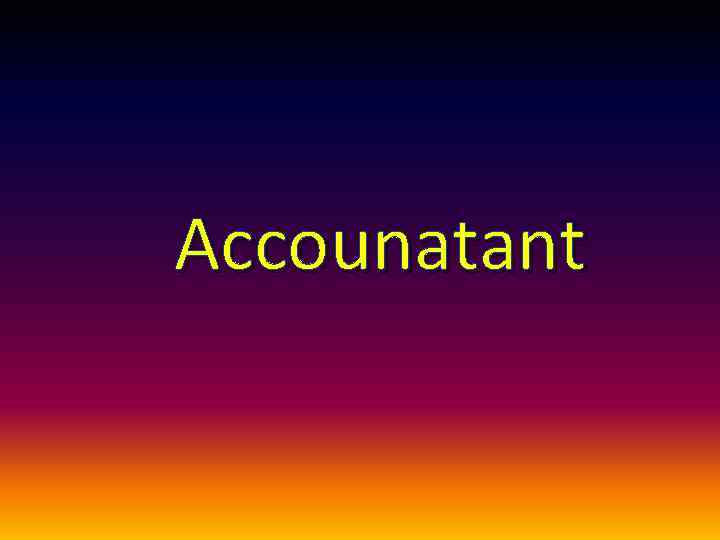 Accounatant
Accounatant
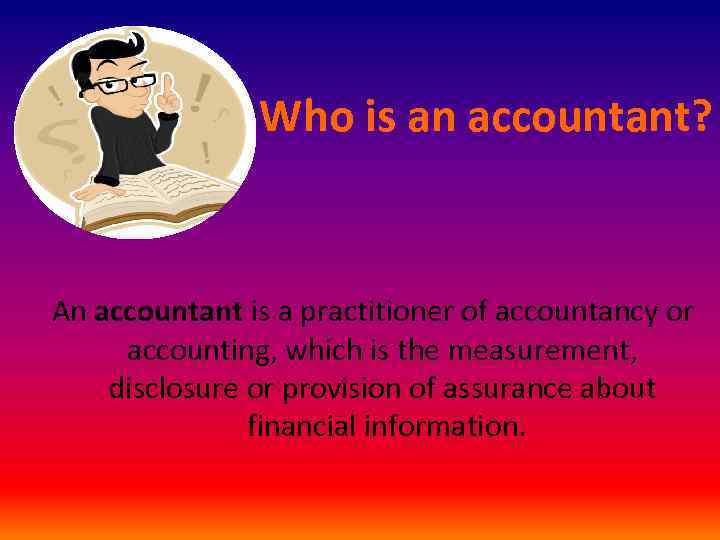 Who is an accountant? An accountant is a practitioner of accountancy or accounting, which is the measurement, disclosure or provision of assurance about financial information.
Who is an accountant? An accountant is a practitioner of accountancy or accounting, which is the measurement, disclosure or provision of assurance about financial information.
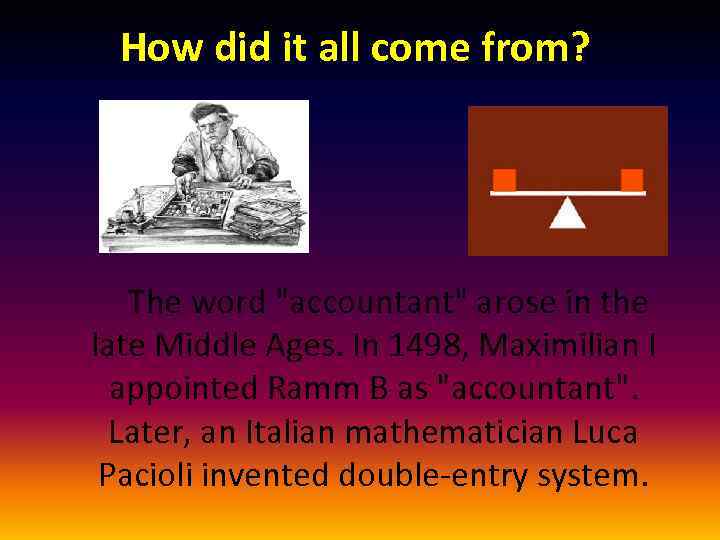 How did it all come from? The word "accountant" arose in the late Middle Ages. In 1498, Maximilian I appointed Ramm B as "accountant". Later, an Italian mathematician Luca Pacioli invented double-entry system.
How did it all come from? The word "accountant" arose in the late Middle Ages. In 1498, Maximilian I appointed Ramm B as "accountant". Later, an Italian mathematician Luca Pacioli invented double-entry system.
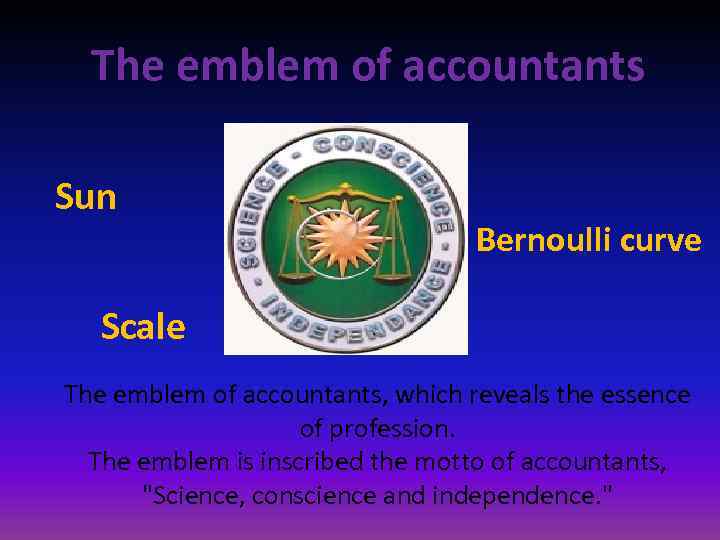 The emblem of accountants Sun Bernoulli curve Scale The emblem of accountants, which reveals the essence of profession. The emblem is inscribed the motto of accountants, "Science, conscience and independence. "
The emblem of accountants Sun Bernoulli curve Scale The emblem of accountants, which reveals the essence of profession. The emblem is inscribed the motto of accountants, "Science, conscience and independence. "
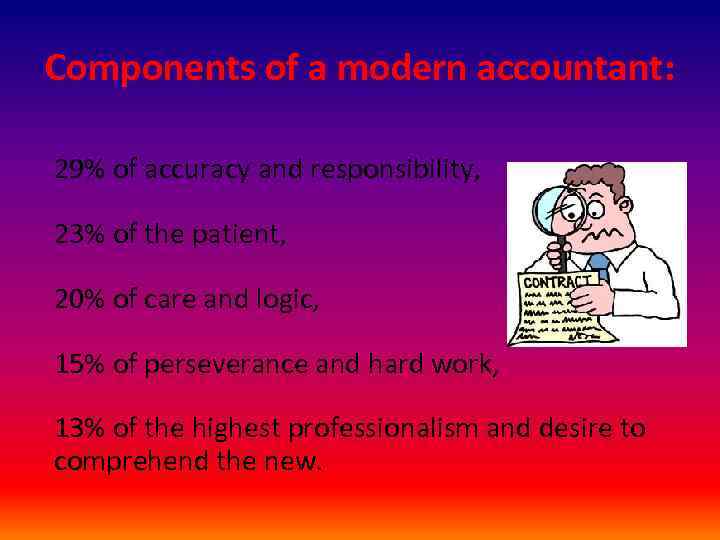 Components of a modern accountant: 29% of accuracy and responsibility, 23% of the patient, 20% of care and logic, 15% of perseverance and hard work, 13% of the highest professionalism and desire to comprehend the new.
Components of a modern accountant: 29% of accuracy and responsibility, 23% of the patient, 20% of care and logic, 15% of perseverance and hard work, 13% of the highest professionalism and desire to comprehend the new.
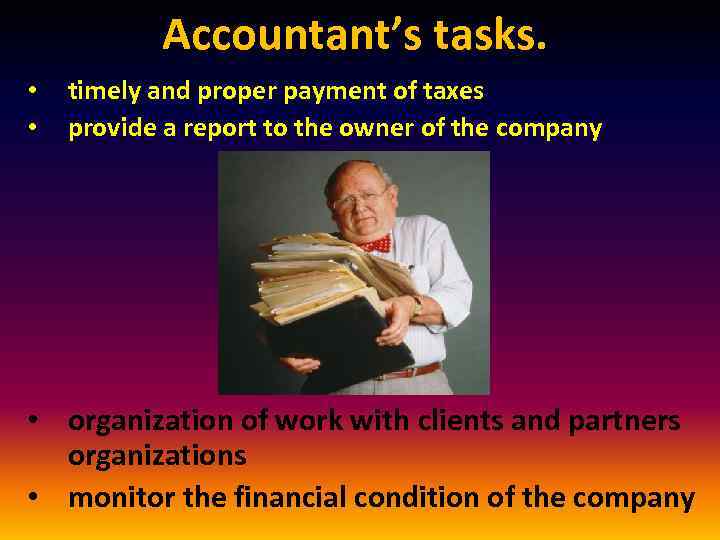 Accountant’s tasks. • • timely and proper payment of taxes provide a report to the owner of the company • organization of work with clients and partners organizations • monitor the financial condition of the company
Accountant’s tasks. • • timely and proper payment of taxes provide a report to the owner of the company • organization of work with clients and partners organizations • monitor the financial condition of the company
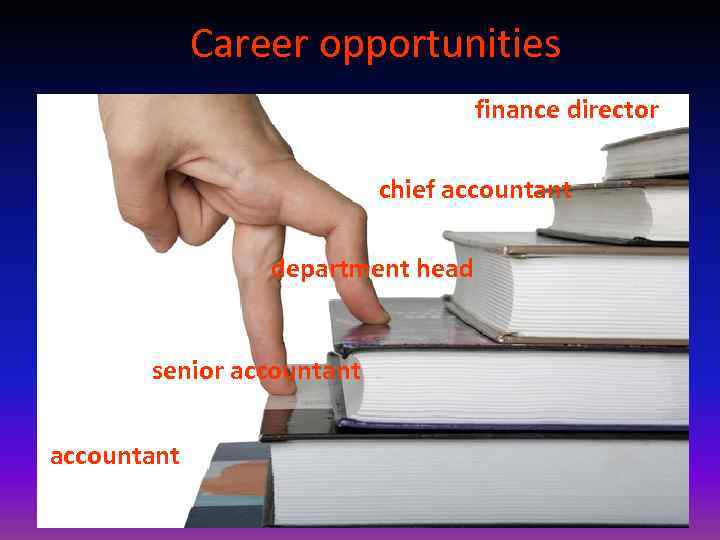 Career opportunities finance director chief accountant department head senior accountant
Career opportunities finance director chief accountant department head senior accountant
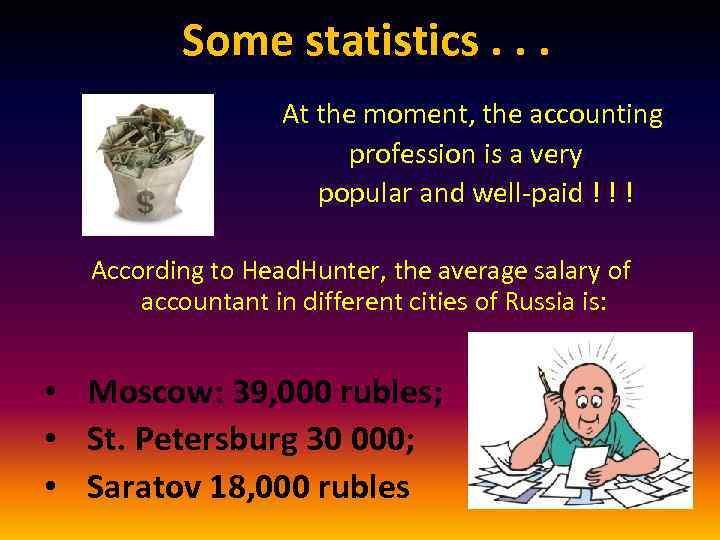 Some statistics. . . At the moment, the accounting profession is a very popular and well-paid ! ! ! According to Head. Hunter, the average salary of accountant in different cities of Russia is: • Moscow: 39, 000 rubles; • St. Petersburg 30 000; • Saratov 18, 000 rubles
Some statistics. . . At the moment, the accounting profession is a very popular and well-paid ! ! ! According to Head. Hunter, the average salary of accountant in different cities of Russia is: • Moscow: 39, 000 rubles; • St. Petersburg 30 000; • Saratov 18, 000 rubles
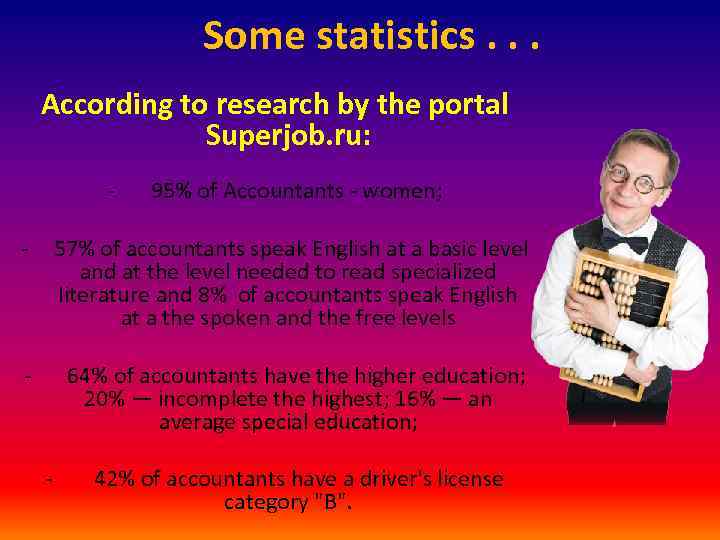 Some statistics. . . According to research by the portal Superjob. ru: - 95% of Accountants - women; - 57% of accountants speak English at a basic level and at the level needed to read specialized literature and 8% of accountants speak English at a the spoken and the free levels - 64% of accountants have the higher education; 20% — incomplete the highest; 16% — an average special education; - 42% of accountants have a driver's license category "B".
Some statistics. . . According to research by the portal Superjob. ru: - 95% of Accountants - women; - 57% of accountants speak English at a basic level and at the level needed to read specialized literature and 8% of accountants speak English at a the spoken and the free levels - 64% of accountants have the higher education; 20% — incomplete the highest; 16% — an average special education; - 42% of accountants have a driver's license category "B".
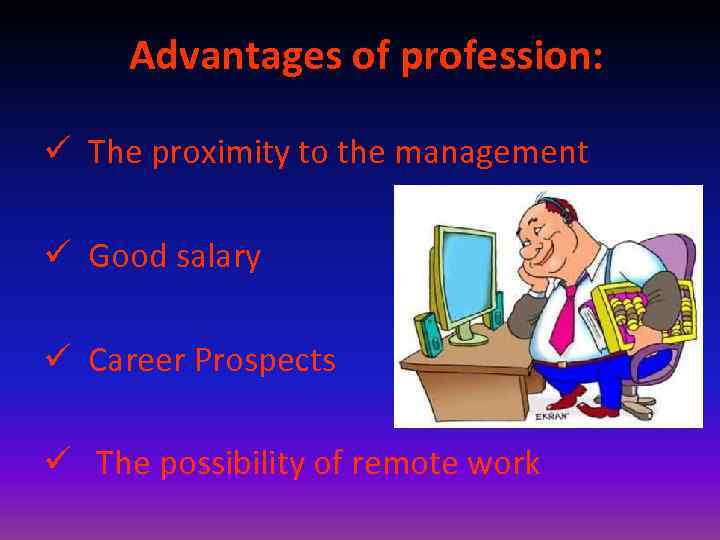 Advantages of profession: ü The proximity to the management ü Good salary ü Career Prospects ü The possibility of remote work
Advantages of profession: ü The proximity to the management ü Good salary ü Career Prospects ü The possibility of remote work
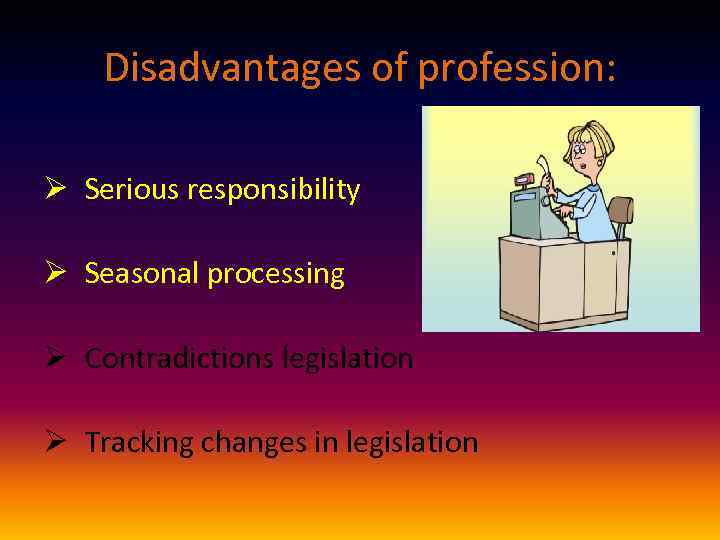 Disadvantages of profession: Ø Serious responsibility Ø Seasonal processing Ø Contradictions legislation Ø Tracking changes in legislation
Disadvantages of profession: Ø Serious responsibility Ø Seasonal processing Ø Contradictions legislation Ø Tracking changes in legislation
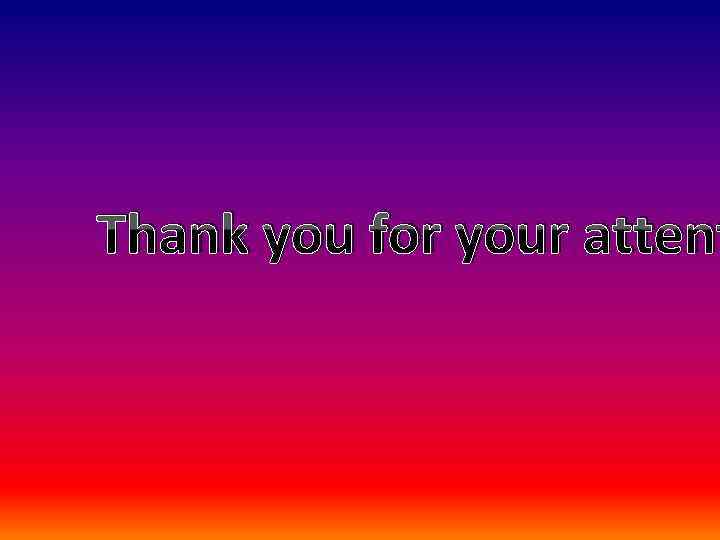 Thank you for your attent
Thank you for your attent